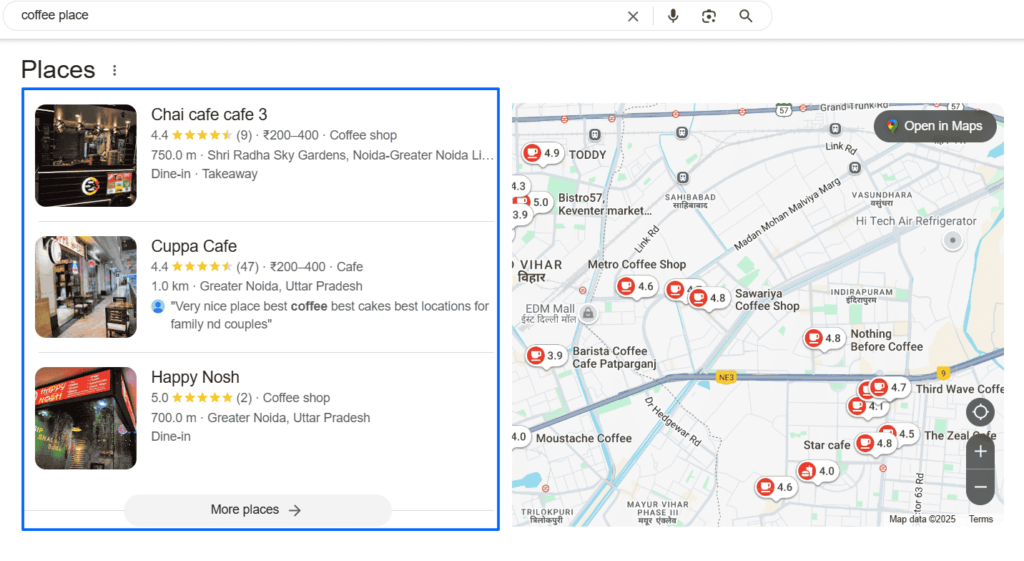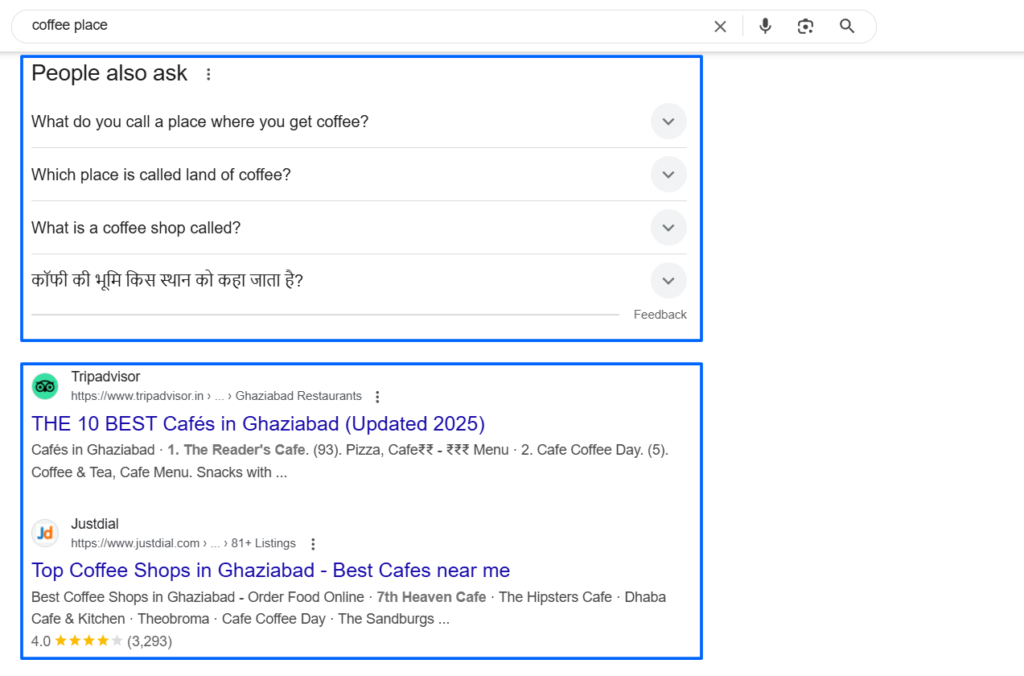Need assistance with search engine optimization (SEO) for your website? This guide will walk you through the basics, provide tools and insights for creating an SEO strategy, and address the common challenges of managing your website SEO along with solutions to overcome them.
We’ve also included additional resources, such as useful tools and key terms to familiarize yourself with. Enhance your site, boost your sales, and take control of your website today with this free SEO help guide. This guide simplifies SEO strategies to help you benefit more effectively. Let’s explore how to optimize your website for SEO. Are you ready to get started?

Before we start, some basic Important SEO Terms
– Keywords: Words or phrases that users enter into search engines to find information.
– Organic Traffic: Visitors who arrive at your website through unpaid search results.
– Search Engine Results Page (SERPs): The page displayed after entering a query into a search engine.
– Backlinks: Links from other websites that direct users to your website.
– Crawling: The process by which search engines scan your website to understand its content.
– Indexing: the process of storing and organizing information from web pages in a search engine’s database.
Table of Contents
What is SEO, and Why Does It Matter?
SEO, or Search Engine Optimization, is the practice of enhancing a website’s visibility on search engines like Google. It involves optimizing various elements, such as content, keywords, meta tags, and backlinks, to improve rankings in organic (non-paid) search results. But still, why this master, why so important!
Basically, SEO is crucial because it helps businesses attract more organic traffic, meaning visitors who find your site naturally through search engines. Here’s why SEO is important:
- Increases Website Visibility – Higher rankings mean more people discover your business.
- Drives Targeted Traffic – Optimized content attracts users who are actively searching for your products or services.
- Builds Credibility & Trust – Websites appearing at the top of search results are often seen as more reliable.
- Improves User Experience – SEO involves optimizing page speed, mobile-friendliness, and content quality, leading to better engagement.
- Cost-Effective Marketing – Unlike paid ads, SEO provides long-term benefits without ongoing costs.
Search Engine Optimization encompasses a variety of strategies aimed at enhancing organic search rankings. These strategies hold significant value, as they focus on improving a website’s visibility in search engine results pages (SERPs).


When your business achieves a top ranking in search results, it opens the door for more people to discover and connect with you. We understand how important this is, especially when it comes to increasing leads and revenue. Here are a few digital marketing statistics that underscore the vital role of SEO in your marketing strategy:
– 94% of website traffic is generated by search engines.
– 68% of all e-commerce shopping starts online, even if the purchase is made offline.
– 76% of online experiences begin with a search engine.
– Local search queries lead to 1.6 billion visits to various locations each month.
We know that embracing SEO isn’t a quick fix; it’s a journey that takes time and persistence. The results can be transformative for your business, so hang in there and be patient. Your hard work will pay off!
SEO Basics Every Business Every Owner Should Know
Any business looking to build an online presence. Whether you run an eCommerce store, offer cybersecurity solutions, or operate a local business, understanding SEO fundamentals can significantly impact your visibility and success. This guide covers the core concepts of SEO and provides actionable insights to help you get started.
How Do Search Engines Work?
Search engines like Google, Bing, and Yahoo use complex algorithms to index and rank web pages. The process involves three main steps:
- Crawling – Search engine bots, also known as crawlers or spiders, scan the internet for new and updated content.
- Indexing – The crawled pages are stored in a vast database, where they are categorized based on their content, relevance, and keywords.
- Ranking – When users search for a query, search engines use ranking algorithms to display the most relevant pages in search results.
Understanding how search engines operate helps businesses create optimized content that aligns with search engine guidelines, improving visibility and ranking.
How Does SEO Work?
SEO involves optimizing your website to rank higher on search engine results pages (SERPs) organically. This means making improvements in on-page, off-page, and technical elements of any website to rank on the right keywords they desire customers to get. The key aspects of SEO include:
- Keyword Research – Identifying the right keywords that your target audience searches for.
- On-Page SEO – Optimizing elements like title tags, meta descriptions, headings, and content to be relevant and keyword-rich.
- Technical SEO – Ensuring your site is fast, mobile-friendly, and properly structured for search engines.
- Link Building – Acquiring high-quality backlinks from reputable sources to enhance domain authority.
- User Experience (UX) – Improving website navigation, page speed, and mobile responsiveness for a seamless experience.
By implementing these SEO techniques, businesses can increase their online visibility and attract organic traffic.
Understanding SERPs and Their Features
Search engine results pages (SERPs) are the pages displayed after a user enters a search query. SERPs consist of various features, including:
- Organic Results – Unpaid listings ranked by relevance and SEO efforts.
- Paid Ads (PPC) – Sponsored results appearing at the top and bottom of SERPs.
- Featured Snippets – Brief answers displayed at the top of the SERPs.
- Local Pack – A set of Google Maps-based results for local searches.
- People Also Ask (PAA) – A section showing related questions and answers.
- Image and Video Results – Visual content displayed for relevant searches.
Understanding these SERP features allows businesses to optimize their content to appear in different search result sections, maximizing visibility.
Overview of Different Types of SEO
There are various types of SEO strategies that businesses can use to improve rankings:
- On-Page SEO – Focuses on optimizing individual web pages through keyword usage, content quality, and proper HTML structure.
- Off-Page SEO – Involves building backlinks, social media marketing, and online reputation management to enhance credibility.
- Technical SEO – Ensures proper site indexing, fast loading speeds, mobile optimization, and security (HTTPS).
- Local SEO – Optimizes a business for location-based searches by enhancing Google My Business profiles and acquiring local citations.
- eCommerce SEO – Tailored for online stores, focusing on product pages, descriptions, and structured data to improve rankings.
Benefits of Using SEO
Investing in SEO offers several advantages for businesses, including:
- Increased Organic Traffic – SEO helps improve your website’s visibility on search engines, attracting more potential customers.
- Cost-Effective Marketing – Unlike paid ads, SEO provides long-term results without continuous financial investment.
- Enhanced Brand Credibility – Higher search rankings establish trust and authority in your industry.
- Better User Experience – SEO practices improve site speed, mobile usability, and overall user experience, leading to higher engagement.
- Competitive Advantage – A well-optimized website can outrank competitors and capture a larger market share.
- Higher Conversion Rates – SEO targets users actively searching for your products or services, leading to more conversions.
- Improved Local Visibility – Local SEO helps businesses appear in location-based searches, driving foot traffic and local sales.
Quick SEO Strategy in Just 9 Steps
Discover how to do SEO optimization by making an SEO strategy! Follow these steps:
- Researching – Conduct keyword research, analyze competitors, and understand your target audience’s search behavior.
- Planning – Develop a structured SEO roadmap, including content plans and backlink strategies.
- Website Usability – Ensure your website is mobile-friendly, fast-loading, and easy to navigate.
- Content Strategy – Create high-quality, engaging, and keyword-optimized content that resonates with your audience.
- On-Page SEO – Optimize meta tags, headings, internal linking, and image alt texts for better rankings.
- Off-Page SEO – Build high-quality backlinks, engage in social media marketing, and collaborate with influencers.
- Technical SEO – Improve site speed, implement schema markup, and fix crawl errors for enhanced search visibility.
- Local SEO – Optimize your Google My Business profile, acquire local citations, and generate positive reviews.
- Tracking and Optimization – Continuously monitor SEO performance using analytics tools and adjust strategies accordingly.
Common SEO Challenges and Solutions
| SEO Challenge | Solution |
| Low Organic Traffic | Optimize for relevant keywords, improve content quality, and build backlinks. |
| High Bounce Rate | Improve page load speed, enhance user experience, and create engaging content. |
| Poor Mobile Optimization | Ensure a mobile-friendly design and use responsive layouts. |
| Slow Page Speed | Optimize images, enable caching, and use a content delivery network (CDN). |
| Low Search Rankings | Conduct competitor analysis, update content regularly, and optimize on-page SEO. |
| Technical Issues (Crawl Errors, Broken Links) | Regularly audit website health and fix errors using tools like Google Search Console. |
| Poor Backlink Profile | Acquire high-quality backlinks through guest blogging and collaborations. |
| Difficulty in Local SEO | Optimize Google My Business profile and encourage customer reviews. |
| Low CTR (Click-Through Rate) | Improve title tags, meta descriptions, and use compelling call-to-actions to attract clicks. |
When to outsource an SEO expert or an Agency’s
Now that you understand how SEO works and why it’s important, let’s examine the signs (FAQ) that indicate your site needs professional SEO assistance.
1. Why doesn’t my site appear in SERPs for my most valuable keywords?
Your site may not be optimized correctly. Conducted keyword research, updated meta tags, and created high-quality content targeting those keywords. Ensure your website is indexed and follows SEO best practices.
2. Why doesn’t my website get much traffic?
Low traffic can result from poor keyword targeting, lack of backlinks, or technical issues. Improve on-page SEO, build quality backlinks, and promote your content through social media and email marketing.
3. Why doesn’t my traffic convert?
If visitors aren’t converting, your website may lack clear calls-to-action (CTAs), user-friendly navigation, or relevant content. Improve the user experience and optimize landing pages for conversions.
4. Why isn’t my site mobile-responsive?
A mobile-unfriendly site can hurt rankings and user experience. Use a responsive design, optimize images, and test your site on different devices to ensure compatibility.
5. Why isn’t my site HTTPS secured?
An unsecured website can lose user trust and impact rankings. Get an SSL certificate to secure your website and ensure a safe browsing experience for visitors.
6. Why don’t I use content marketing?
Content marketing helps attract, engage, and retain customers. Create high-quality blog posts, infographics, and videos targeting your audience’s needs and questions.
7. Why does my site provide a bad user experience (UX)?
A poor UX can lead to high bounce rates. Improve navigation, page speed, and readability to enhance the user experience.
8. Why does my new site not have many backlinks?
Backlinks signal authority to search engines. Reach out to industry websites for guest posting opportunities, create shareable content, PR, and engage in digital marketing strategies.
Improve your SEO with Greatinflux
Need professional help with your SEO?
Check out our professional SEO services and SEO pricing. If you like what you see, call us at +917919717755 or contact us online to speak with a strategist.
We’re excited to help you achieve results with a custom SEO campaign! Try our complimentary one-month SEO service for free!
